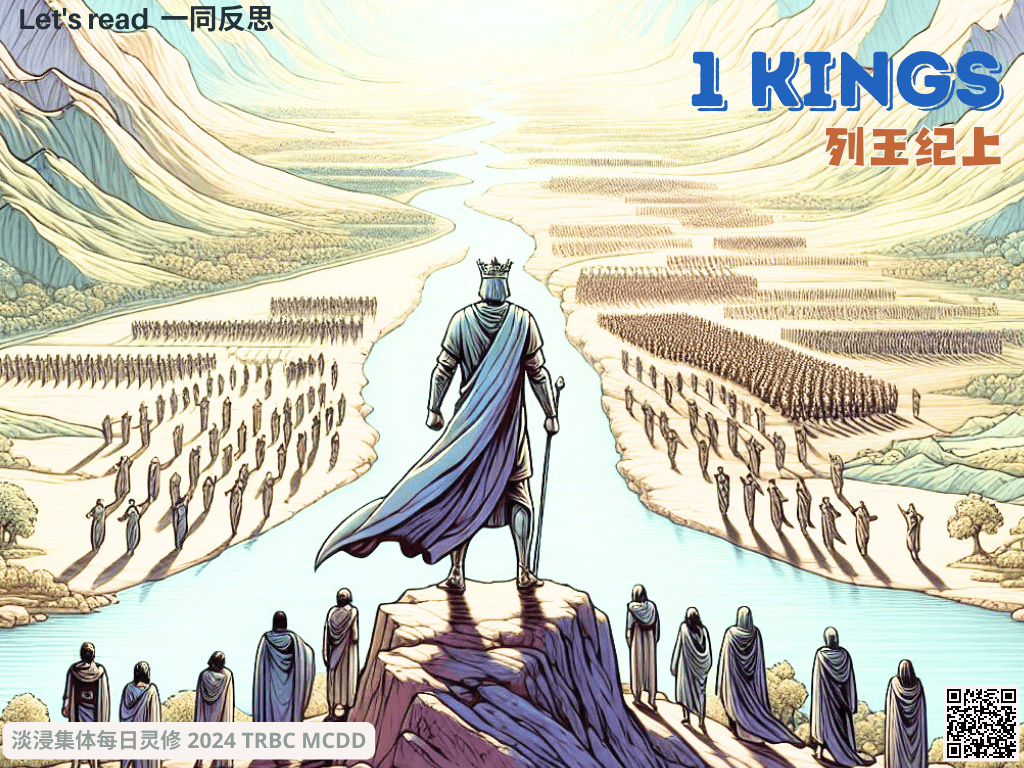Last 5 Days

From what lenses do you view?

Click here to read Scripture
1 Kings 9:10 to 10:29 shows us the empire of Solomon at its glorious peak, one envied and feared among the nations around Israel. However, we can view these verses from two very different lens. When viewed through a pair of secular lenses, you can see the growing success, wealth and power of King Solomon. But if we pay close attention through a pair of biblical lenses, we can see a downward spiral spiritual climate.
Firstly, in 1 Kings 9:10 to 10:29, you see that Solomon accumulating gold in extraordinary large amounts – amounts that were increasing (120 talents in 9:14, 420 talents in 9:28, 666 talents in 10:14) as we read through the passages and were collected from more and more exotic places. Some commentators have seen this as a good thing since God has promised Solomon riches (1 Kings 3:13).
But is it so? We know that these 120 talents of golds given by King Hiram in today’s verses were probably given in exchange for the 20 cities from King Solomon. The bible is not clear as to the agreement of exchange between King Solomon and Hiram, but what we know is that Hiram was displeased with what he had received. He called the cities which Solomon gave as the land of Kabul which was translated as “good for nothing”. Hiram was unhappy because the land given by Solomon was not equitable to the 120 talents of gold which was a large amount. Yet, Hiram ultimately could not resist Solomon’s will. This showed how shrewd and powerful King Solomon was, even over his own allies.
Secondly, chapter 9:15-25 spoke of how the non-Israelites (Amorites, Hittites, Perizzites, Hivites, and Jebusites) who were staying in the land —whom the Israelites could not exterminate were conscripted to become slave laborers to build the house of the Lord and the other buildings. From a secular lens, Solomon looked like a successful king who was powerful enough to subject all the non-Israelites under his control. Through these large number of laborers, he built strong and fortified cities for the prosperity of his nation.
But again, is that the heart of God? God’s heart is for the complete destruction of the Canaanites so that there will not be danger of intermarriages with foreigners (Deuteronomy 7:1-6). These people were meant to be exterminated so that they could not lead Israel into the danger of apostasy. Yet, Solomon had kept them in order for them to be used as slave laborers. On top of that, Pharoah’s offering of Gezer as a wedding gift to his daughter, Solomon’s wife was a reinforcement that Solomon was turning away from God.
From a biblical lens, Deuteronomy 17:17 was clear that “the King shall not acquire many wives for himself, lest his heart turn away, nor shall he acquire for himself excessive silver and gold.” Both excessive wealth and woman brings with it the danger of apostasy. God foresee and had just warned Solomon to in the earlier verses in 9:6-9 about “turning away from God”, but Solomon could no longer see his downward spiral spiritual climate.
Dear brothers and sisters, through what lenses do we view our world? God calls us to look through a biblical lens, to observe His commandments and decree. Will we always return back to the Word as the founding principle of how we live our lives? Will we hold to high regards what God commands rather than to live as the world demands of us? May God give us the wisdom to live our lives for Him!
